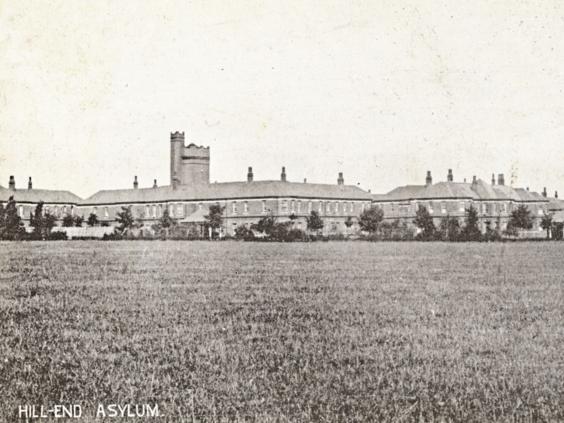“We were beaten, we were punched, we were put in headlocks, we had our heads rammed into doors
…I was one of the lucky ones because I wasn’t raped, but I know of other people who were.”
Alan* was 11 years old when he was taken into Hill End Hospital Adolescent Unit in St Albans – a place where he was meant to be cared for alongside other vulnerable children.
It was 1993 and he had been “naughty”, running away from the children’s homes and care centres social services shifted him between.
Hill End was supposed to treat teenagers with psychiatric illnesses, but by the time Alan arrived it had become what he called “dumping ground” for children for whom the NHS and local authorities had run out of other ideas.
“Nobody had anything diagnosed by any doctor as psychiatric problems,” he told The Independent. “It was the last option for us – we were all children, 11 and 12-year-olds.”
The fate of those children is now thesubject of a police investigation spanning almost 30 years, from 1969 to when the Hill End Hospital Adolescent Unit closed in 1995. The area is now a modern housing estate.
Detectives are appealing for former patients to come forward as they probe allegations of sexual and physical abuse.
Alan says his own horrific experience is just one of “thousands” of similar accounts from survivors who have found each other online and had some of their cases taken on by a high-profile legal firm.
He was at Hill End for six weeks but the ordeal has stayed with him for life.
“It’s one of those things you try to put at the back of your mind but it’s something I’ve thought about every day since,” said Alan, who is now 35.
The abuse started on his first night at the hospital, after he tried to hug his mother goodbye as she left.
“The next thing I remember was being dragged by three men into what looked like a police cell…and I was then having a needle shoved inside me to be put to sleep,” he said.
“Four, five days a week I was sedated. The problem was the things they’d sedate you for - if you were talking to another one of the children and a member of staff couldn’t quite hear what you said, that was enough for them to be ‘concerned’ enough that you’d need sedating.”
Alan said attempts to talk about the abuse with other children was met with “serious consequences” and that staff brutally enforced strict rules about what could be discussed, arguing that patients could be distressed or planning an escape.
Alan, whose account has been mirrored by dozens of other survivors held in Hill End at different times, said young patients deemed to be misbehaving were locked in the “cell”, ordered to drink a liquid sedative and then forcibly injected if they refused.
He said he saw one child appear to go into cardiac arrest on the hospital floor after being given too much of medication to sedate him.
“They got his heart restarted and just dumped him back into bed,” Alan said. “There was probably never any record whatsoever.”
As well as the sedation and physical abuse that accompanied it, survivors have reported being raped and sexually abused by hospital staff – frequently while being sedated or during strip searches.
Alan said they would take place two or three times a day, with boys and girls being left completely naked, sometimes on the pretence of checking for items they could harm themselves with.
“I was one of the lucky ones because I wasn’t actually raped but I know of other people who say they were while they had been sedated,” he added.
The treatment the hospital supposedly provided appears to have been ineffective at best. When entering Hill End, Alan was told his behaviour would be assessed, but never underwent any tests or saw a result.
“It was like a religious cult,” he recalled. “All day long you’d all sit in a big waiting area with music playing at the background, and then get called to meetings five or six times a day where you’d have to sit in circles and meditate. It was very peculiar.”
He was abruptly freed after six weeks, and has found from subsequent records checks that serious concerns were raised by a senior social services worker that he was not admitted under the “correct procedures”.
But he never heard from social services on Hill End again. The medication he was given does not appear on any records given to GPs and police have told Alan and other victims the hospital’s own documents were destroyed in an arson attack at an undisclosed off-side facility.
Hertfordshire Constabulary have now set up a dedicated investigation, codenamed Operation Meadow, to probe the claims but Alan says he first reported his abuse two years ago and that officers had the chance to stop the horrors underway at Hill End decades before.




No comments:
Post a Comment